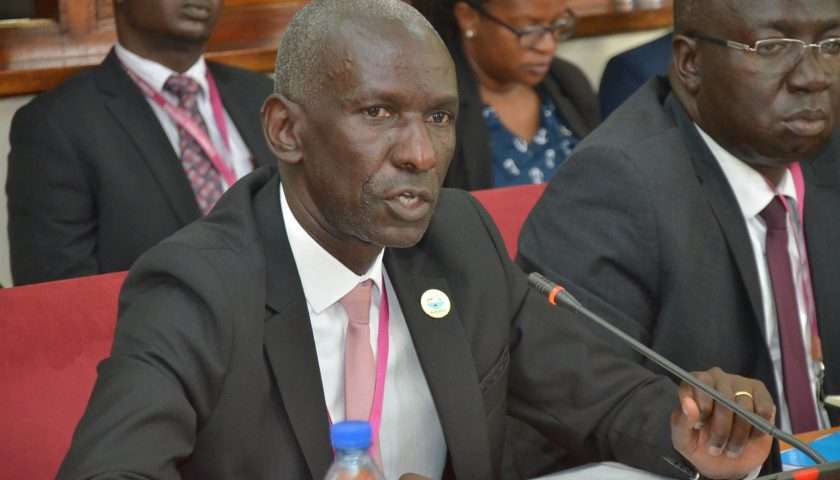The new Anti-tick vaccine, which has been developed by the National Agricultural Research Organisation (NARO) is expected to save Uganda an annual integrated economic loss to the tune of sh3.7 trillion when rolled out countrywide.
At a farmer level, the Vaccine will tick away losses worth sh188,000 per cattle per year arising from ticks and tick-borne diseases.
This innovative vaccine, according to NARO director general Dr Yona Baguma, promises benefits for Ugandan Farmers: “Beyond the financial benefits. With healthier livestock, farmers can focus on increased productivity, ensuring food security for their communities and potentially generating additional income”.
According to him, when this vaccine is rolled out, issues of cattle mortalities, cost of acaricides, reduced milk and meat production and labour costs involved in the management of ticks and tick-borne diseases will be combated.
Baguma was speaking during an interface with the agriculture, animal industries and fisheries committee at Parliament yesterday, where NARO was presenting its budget framework policy statement.
Safety of the vaccine
He assured the committee on the safety of the vaccine in cattle, saying it has an effectiveness of 93 per cent effect on the hatchability of tick eggs.
“We already finished the process of clinical trials and the vaccine awaits rollout and commercialisation. We request for special support for this innovation to be successful,” Baguma added.
Sh64b need for vaccine rollout
While the vaccine’s potential is undeniable, challenges remain, including securing widespread adoption among farmers through awareness campaigns and ensuring proper application.
“We are appealing to the Government for a special fund of sh64b to support the rollout of an anti-tick vaccine across the country. We have a presidential directive that supports our request and we are asking you to consider availing funds for this national critical project,” Baguma said.
He also revealed that the entity has developed a modern vaccine research facility which at the moment stands at 80% completion at Nakyesasa, Namulonge in Wakiso district.
Statistics
The resulting economic losses from ticks are staggering, leaving farmers vulnerable and hindering the nation’s food security.
East Coast Fever is the most prevalent and economically bruising tick-borne disease (TBD) in sub-Saharan Africa.
In Uganda, ticks are responsible for the deaths of an estimated 1.2 million cattle annually, with about 98% of cattle in Uganda infested.
MPs raise concerns
Committee chairperson Janet Okori-Moe (District Woman Representative, Abim, NRM)said successful vaccination could lead to a significant reduction in tick-borne diseases, increased livestock productivity, and improved livelihoods.
“A group of innovators at Makerere University also claim to be at an advanced stage of vaccine production. How are you harmonising with them so that the country will not be found spending on duplicated projects?” Abed Bwanika (Kimaanya-Kabonera Division, NUP) said.
Bwanika also demanded that the committee needs to know the status of all the lands owned by NARO citing previous complaints of encumbrances on the land.
Auditor General’s report
In his audit report on NARO’s financials for the financial 2021/2022, the Auditor General noted that 90 pieces of land with an unknown total acreage were recorded in the entity’s land register but not recorded in the Government Financial Management Information System (GFMIS) fixed asset module.
In addition, he noted that the entity did not transfer 15 pieces of land measuring 4,609,775 hectares held into the name of the custody of the Uganda Land Commission (ULC).
Baguma explained that since ULC has never granted them land titles, it means that the land they have is co-registered with the board

